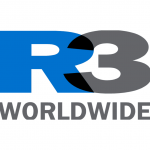A scheme in Malaysia aimed at helping ethical businesses will boost the growing sector, but must offer greater financial incentives and a simpler registration process, entrepreneurs said recently.
Some 22 social enterprises ranging from a bakery run by deaf people to a cafe helping disadvantaged youths received accreditation this month for the government-backed scheme.
As well as recognising social enterprises — companies which address environmental and social problems while making a profit — so they can attract more business, the scheme offers tax deductions and access to grants.
However, some entrepreneurs say registration is too cumbersome.
“The documentation process is very data-intensive. Aspiring or new social enterprises will find it difficult so there must be an easier process,” said Kuhan Pathy, co-founder of Masala Wheels, which runs a cafe and trains marginalized youth to become entrepreneurs.
Across Southeast Asia, rapid economic growth has seen nations like Indonesia and Malaysia become wealthier but struggle to tackle social challenges like urban poverty, unequal access to education and environment sustainability.
Nations like Thailand and Vietnam are introducing laws to promote social enterprises which can narrow inequality.
But analysts warn the effort could hinder, not help, the growing number of ethical businesses.
Recognition is good, entrepreneurs say, but regulations can restrict growth and innovation.
Malaysia, a major Southeast Asian economy, was ranked the 30th best country to be a social entrepreneur in a 2019 poll of 45 nations conducted by the Thomson Reuters Foundation in partnership with Deutsche Bank, down from 9th place when the poll was conducted in 2016.
The country’s fall in the rankings was due to it becoming more difficult for social entrepreneurs to access investment and sell to business, according to experts surveyed.
Tracking social impact — a key conundrum for the sector — and monitoring financial performance, will be part of the new scheme, Pathy said.
However, accessing tax exemptions is not straight-forward, he added. Pathy urged the government to offer incentives for businesses and agencies that use social enterprises.
The government arm backing the scheme — the Malaysian Global Innovation & Creativity Centre — declined to comment.
Lai Chong Haur is a director at Seven Tea One, a Malaysian social enterprise that helps teenagers with autism and single mothers make handcrafted teas, soaps and cookies.
He said the accreditation scheme would hopefully raise awareness among the public and businesses.
However, he urged authorities to adopt a strict screening process to ensure the scheme earns the confidence of business leaders.
“It is crucial for the government to be involved in the development of social enterprise in Malaysia,” Lai, whose firm is accredited under the scheme, said.
“The accreditation scheme is merely the beginning of the journey being a social enterprise.” — by Michael Taylor, Thomson Reuters Foundation
(Thomson Reuters Foundation is the charitable arm of Thomson Reuters that covers humanitarian news, women’s and LGBT+ rights, human trafficking, property rights, and climate change. Visit: http://news.trust.org)
MARKETING Magazine is not responsible for the content of external sites.









